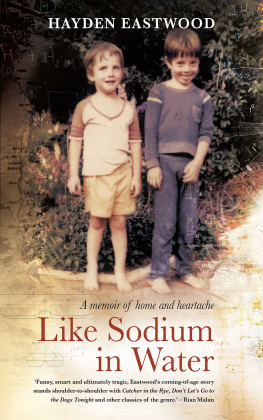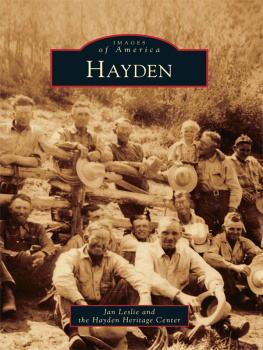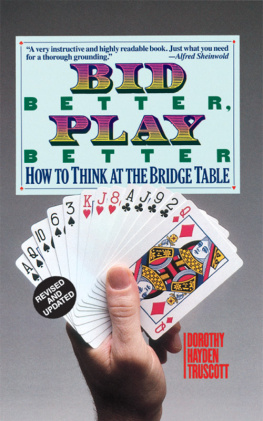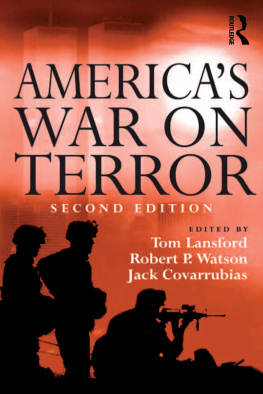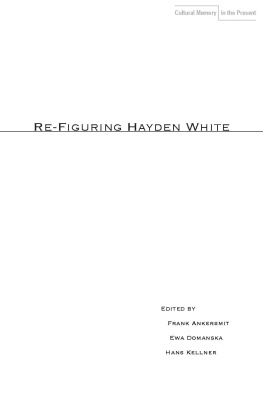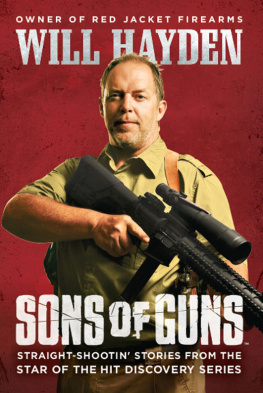When I was a child I picked up a novel by Stephen Fry. The foreword was by Hugh Laurie, and it went like this: Its very unfair. It took Joseph Heller seven years to write Catch 22 . Stephen seems to have knocked this one off on a couple of wet Wednesday afternoons in Norfolk.
I didnt know that twenty years later Id look back and feel nothing but envy for Mr Heller. Seven years! How did he manage to write a book so quickly?
I knew I would tell this story when I was twenty-one, but it was only when I was thirty that I finally wrote it down. And I only did so because not writing it down was beginning to drive me mad.
I refer to real events and real people, but the account is written like a novel because it was easier to write like that. I have changed the names of some of the people and places involved, and one minor character is an amalgamation. I am reluctant to call this book a memoir because the word implies, at least to me, the existence of some certainty about what happened.
I dont have certainty, and I dont trust my memories (or my evaluation of them) enough to say, This is the truth. As such, I make no claim that my descriptions and analyses are impartial, or that they present an accurate insight into my country or society. The events in this story should be understood for what they are: a catharsis of a time and place that boiled its way out of me.
I owe a big thank you to many people, but particularly Douglas Rogers, for introducing me to Jonathan Ball.
I received so many rejection letters from publishers that I planned to dcoupage a door with them. When just another email arrived, this time from Jonathan Ball, I almost sent it straight to the recycle bin without reading it. You are reading this story because I read that email.
Chapter 1
Two large men in dark suits block access to First Class. The loudspeaker chimes. Ladies and gentlemen; esteemed members of the Politburo; Mai Grace Mugabe, Mother of Africa; and His Excellency, President and Head of State and Government, and Commander-in-Chief of the Armed Forces, Comrade RG Mugabe, welcome aboard this flight to Harare, Zimbabwe. Please fasten your seat belts for take-off.
The thrust of the engines presses me into my seat. But the men in dark suits and sunglasses stand perfectly straight and still, as though theyre immune to the equation f=ma , as though theyre of another world. A passenger in a nearby seat mutters, Lets hope this thing can actually take off with all of Graces shopping on board. I open a copy of the Journal of Chemical Physics and read the summary section of an article on statistical thermodynamics.
Good evening, ladies and gentlemen; esteemed members of the Politburo; Mai Grace Mugabe, Mother of Africa; and His Excellency, President and Head of State and Government, and Commander-in-Chief of the Armed Forces, Comrade RG Mugabe. Dinner will now be served.
The man next to me removes a white-hunters hat from his face. He sits up straight and rubs his eyes. The hostess taps him on the shoulder. Chicken or beef, sir?
I turn my attention to the journal in my lap. Its the wrong reading material for a long flight; I put it away.
Excuse me, I say to the white-hunter man. Could I just squeeze out for a moment?
Toilet?
Yeah.
Theres only one working, he replies.
The queue of people stretches down the aisle. I edge closer to the door. The stench of urine grows stronger. A girl with bleach-blonde hair pushes past me. Excuse me, I really need to go, she says.
I give up and return to my seat. I close my eyes and try to sleep but struggle to find a comfortable position in the cramped space.
Restless thoughts swirl around my head. What will I find when I return home? How much will life have changed this time? Will we even have water? And what about Blair Road? Will the old man have butchered all the trees? Will the roof and walls be crumbling yet?
When I open my eyes, the plane is below the clouds. The horizon glows a faint blue through the window. A hostess waddles down the aisle with a trolley.
The loudspeaker chimes. Ladies and gentlemen; esteemed members of the Politburo; Mai Grace Mugabe, Mother of Africa; and His Excellency, President and Head of State and Government, and Commander-in-Chief of the Armed Forces, Comrade RG Mugabe, welcome to Harare, Zimbabwe. Please fasten your seat belts for landing.
Dry bush and derelict farmland glide past the window. The browns and beiges pierce me with their crispness. The plane jolts. We taxi along the bumpy runway. A long red carpet awaits us at the airport terminal. The airport building stands solitary and dirty and small against a perfect turquoise sky. Black Mercedes with tinted windows wait like columns of dead beetles. The brass of a military pipe band glints in the morning sun. Crowds of people wave pictures of the president above their heads.
His Excellency, President and Head of State and Government, and Commander-in-Chief of the Armed Forces, Comrade RG Mugabe walks robotically down the red carpet. He shakes the white-gloved hand of what looks like a military general.
Ladies and gentlemen, thank you for your patience. You may now disembark through the rear exit.
Party supporters turn their heads and stare at me as I walk past them. They remain expressionless and silent, as though theyre searching their memories for a section in the party handbook they once read, the bit that says, What to do if a bunch of dishevelled white imperialists exit the presidents aeroplane immediately after hes said he doesnt like white imperialists.
The customs man stamps my passport. I walk through the dim hall to the baggage collection area. I put my rucksack on a trolley and walk towards the glass doors. They open, and I put one foot into the arrivals hall. Mum stands on the other side waving at me.
I sense a tug on my shoulder. Excuse me, sir, says a young man in an official-looking outfit. Would you mind stepping to one side, please?
This is just procedure, he continues. I just want to make sure that you are not a security threat. He puts my bags on a nearby table and unzips them. He pulls out some shirts and shoes and a PlayStation. He removes a pair of odd socks and some trousers. He removes a half-eaten chocolate bar, still in its wrapper, and a tennis ball. He pulls out my chemical physics journal. What is this? he asks.
Its a science journal, I say. I need it for my research.
What kind of research?
Physical chemistry research. Or chemical physics. One of the two, I never know which.
He pages his way through the equations and symbols as though studying them will somehow unveil a secret. He closes the journal and puts it on the table. He returns his hands to my rucksack and removes a British passport. He puts it on the desk next to my Zimbabwean one. Our eyes meet. My stomach turns. Wait here, he says.
A woman with giant bosoms walks into the room. Come this way, she says to me.
She leads me to a small office and seats me at a wooden desk, strewn with dog-eared papers. Her hair is in a bun, seemingly held in place with grease and glue, highly flammable. She studies me silently, her bosoms overflowing onto the table in front of her.
What are you doing with two passports? Do you know that you are breaking the law?
I say nothing.
I have asked you a question!

